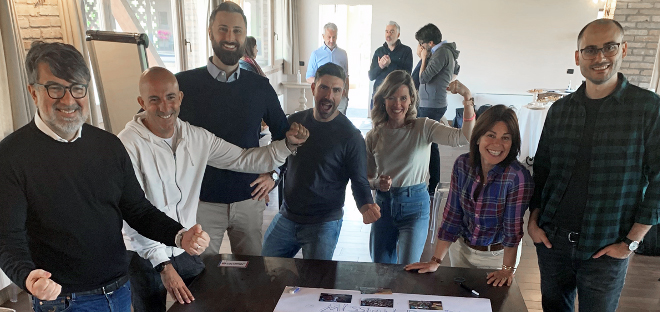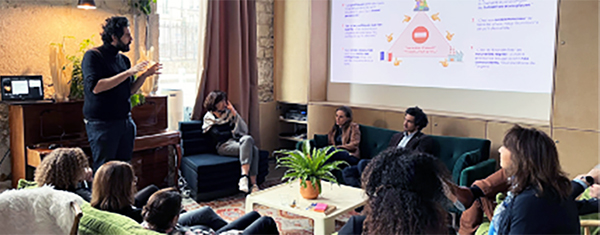- CSR -
- Developing a reSponsiBLe model -
- Major awareness campaign

Raising awareness among all Group employees about CSR issues


THOM is committed to integrating CSR principles across all levels and business lines. This commitment ensures that the significant challenges of sustainable development are systematically embedded in the company’s overarching strategy.
The CSR department operates as a cross-functional entity with the role of structuring, acculturating, equipping, and supporting our teams. To foster transformation within the company, we recognise the pivotal role of awareness-raising as a highly effective tool.
This approach serves several crucial purposes:
- Getting teams on board, facilitating a deeper understanding of the significance of CSR and encouraging active engagement,
- Facilitating change acceptance, removing obstacles, and supporting the accelerated implementation of actions,
- Encouraging people to participate in the transition.
An extensive awareness programme was implemented in 2024 in the form of collective intelligence workshops based on scientific data. All head office employees took part in the ‘climate fresco’ to gain a better understanding of major climate change issues, understand the urgent need for action and identify levers for change. More than 20 volunteer employees were trained to facilitate the climate fresco, which brought together all employees from headquarters and logistics platforms.
The CSR fresco, a tool specially created for sales teams, has been rolled out to raise awareness among all store teams.
The Group raised awareness among its 6,000 employees in under six months. Since then, all new Group employees have been introduced to it during their onboarding programme.
The awareness programme has not only led to the introduction of transformation projects across all business lines, but has also helped to permanently embed essential eco-friendly practices, such as gradually reducing paper use, sorting waste at source and controlling energy consumption into our everyday habit